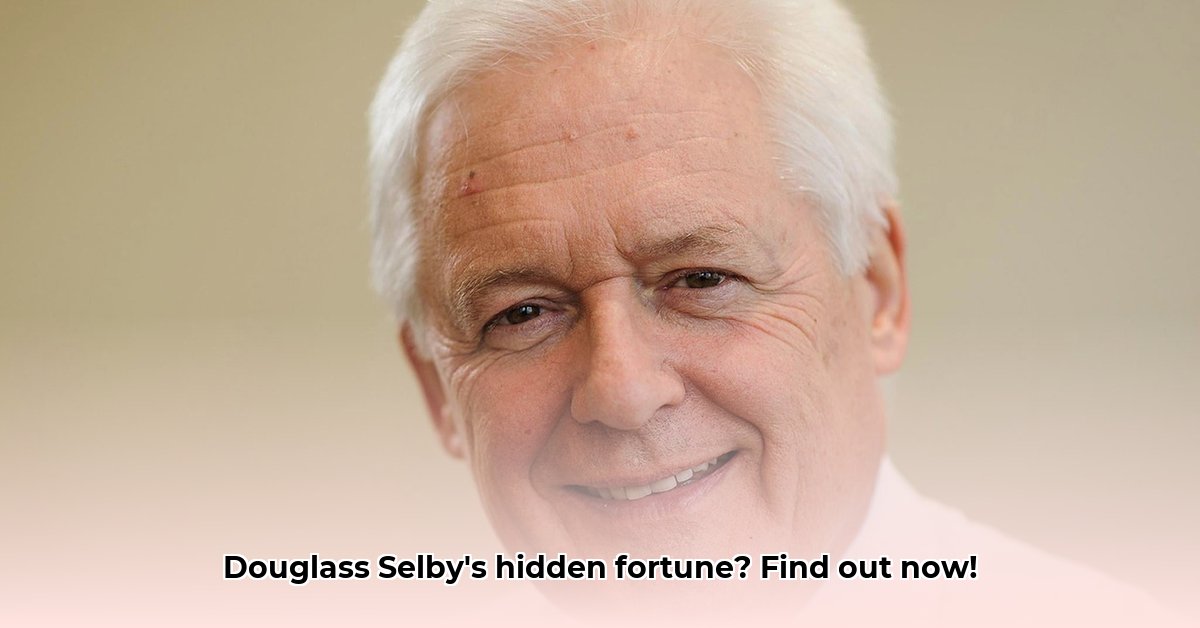
Douglass Selby, a prominent partner at Hunton Andrews Kurth, stands as a leading figure in public finance law. While precise details regarding his net worth remain private, a review of his impressive career reveals a strong indication of substantial wealth. This article examines his professional trajectory, expertise, and influence within the field to illustrate the likely financial success associated with his accomplishments.
A Stellar Career in Public Finance
Douglass Selby's career reflects exceptional achievement and leadership within the legal profession. As co-chair of Hunton Andrews Kurth's nationwide public finance practice group and managing partner of their Atlanta office, he holds positions demanding extensive experience and significant financial rewards. His career isn't merely a sequence of achievements; it represents a trajectory consistently marked by success at the highest levels of the field.
His expertise extends to representing both governmental entities and investment banks in complex, multi-million and even billion-dollar projects. He's renowned for his ability to structure innovative financing solutions, specializing in Public-Private Partnerships (P3s) and Tax Increment Financing (TIF) districts—projects which fundamentally reshape urban landscapes. This dual perspective allows him to understand and navigate the intricacies of these transactions effectively.
Expertise and the Potential for Wealth
Selby's skills are highly sought after within the public finance sector. His comprehensive knowledge encompasses all facets of bond issuance, from initial planning to post-issuance regulatory compliance. His portfolio includes various bond types, such as revenue bonds, general obligation bonds, and TIF district bonds. This comprehensive expertise commands significant fees in a field where specialized knowledge is paramount.
His impact is quantifiable: he's represented clients in bond issuances totaling billions of dollars. These projects encompass substantial infrastructure developments such as stadiums, arenas, and transportation expansion—all requiring sophisticated financial planning and execution. His role extends beyond advisory; he's a key player in bringing these large-scale projects to fruition. This high level of responsibility in high-stakes transactions strongly indicates a substantial income.
Influence and Impact: Shaping Public Finance
While a precise net worth remains undisclosed, the evidence strongly suggests substantial wealth. Selby's career trajectory, marked by leadership roles and participation in high-stakes ventures, points directly to considerable financial success. Importantly, his influence extends beyond personal financial gain; his work shapes the landscape of public finance impacting communities and infrastructure development on a significant scale.
He acts as a pivotal architect of funding for major projects, offering advice that influences decisions involving billions of dollars. This level of influence, combined with his expertise, is a major factor contributing to his overall financial standing.
Conclusion: A Legacy of Success
Douglass Selby's influence on public finance is unquestionable. His continued success at Hunton Andrews Kurth strongly suggests a sustained, high level of financial stability. The complexity of his work and the leadership positions he holds all point to a substantial net worth. While the specific figure remains private, the evidence overwhelmingly indicates he has achieved significant financial success, a testament to his expertise and dedication to his field. His contributions extend far beyond the balance sheet, influencing infrastructure and community development for years to come.
Key Takeaways:
- Extensive Experience: Selby's decades-long career demonstrates mastery of public finance law.
- High-Stakes Projects: His involvement in billion-dollar projects underscores his value and earning potential.
- Leadership Roles: His positions as co-chair and managing partner indicate high compensation.
This assessment focuses on observable career achievements and reasonable inferences, avoiding unsubstantiated speculation. The conclusion of substantial wealth is drawn from a strong foundation of verifiable facts and professional context.